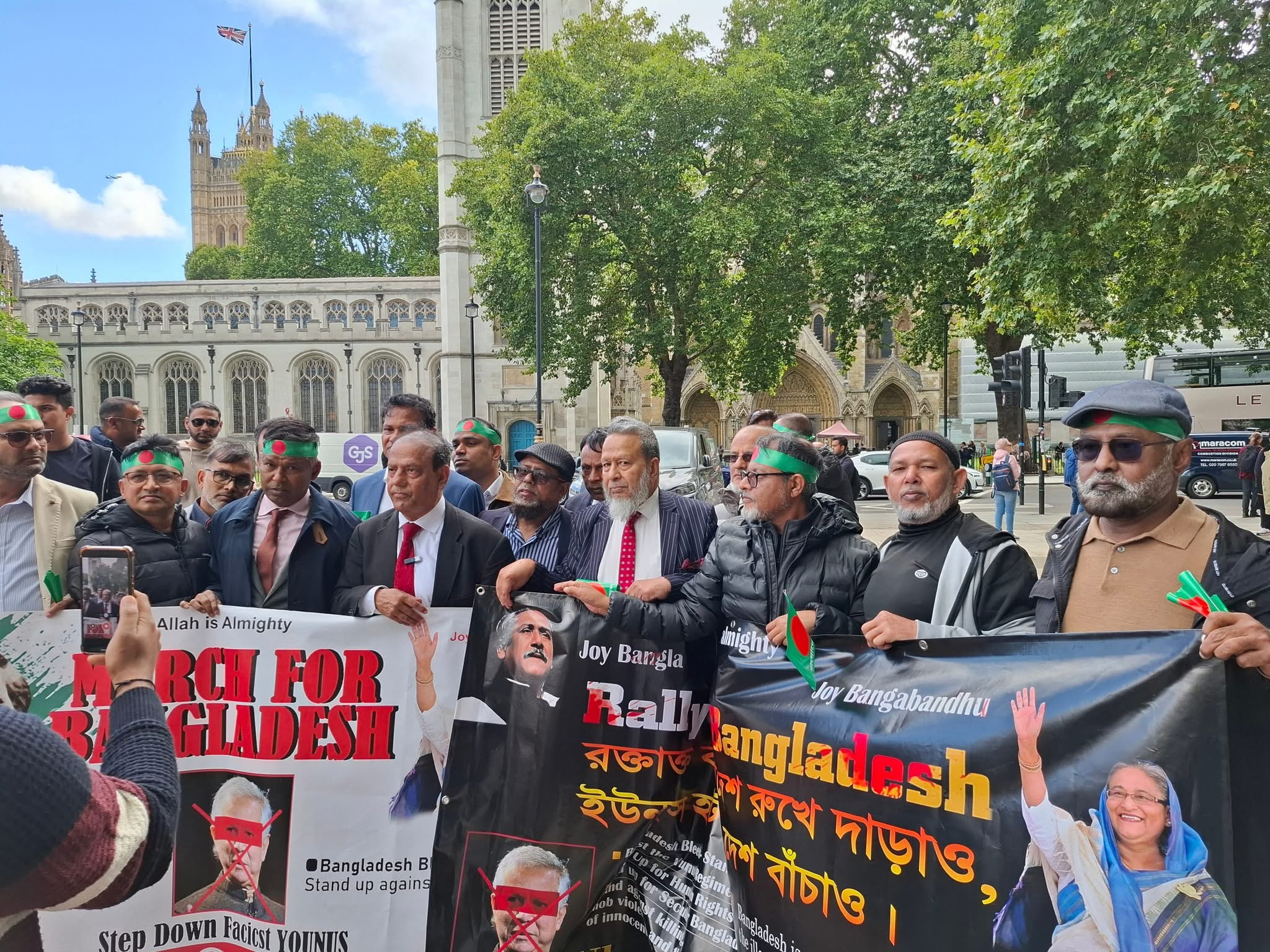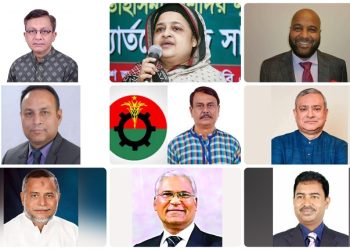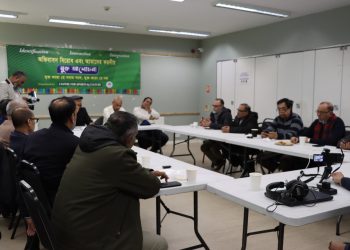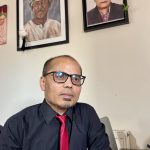
Juyel Raaj :

On 15 September, a “Rally for Bangladesh” was held at London’s historic Trafalgar Square. The rally was organized in protest against the misrule of Bangladesh’s interim government, mob terrorism, the destruction of the spirit of the Liberation War, killings, rapes, looting, corruption, and with the demand for the resignation of this government.
Responding to the call of the UK Awami League, several thousand people from different cities of the United Kingdom gathered at Trafalgar Square. From towns three hundred, four hundred miles away, people arrived in busloads to join the rally. Along with Awami League leaders and activists, people from different walks of life also took part. From Portsmouth came two people over seventy years old. I asked one of them why, at this age, he came from so far. His name is Asab Ali, President of Portsmouth Awami League. He said: “Not as the president of Awami League, but as a human being, it is impossible for me to sit at home silently without protesting the situation that this Yunus government has created in Bangladesh. That is why I came and joined this protest.”
As processions from different UK cities and even London-based organizations marched through the streets, it was hard to tell whether it was the streets of Dhaka or London. This “Rally for Bangladesh” was the largest gathering of Bangladeshis in London since the Liberation War.
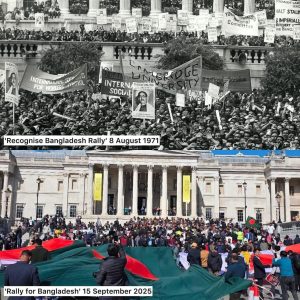
Along with the leaders and activists of the UK Awami League, Jubo League, Chhatra League, and other affiliated organizations, leaders from various European countries also joined this rally. In the context of the events following 5 August 2024, former MPs, ministers, local government representatives, and leaders of various organizations who took shelter in the UK also participated.
The General Secretary of UK Awami League, Syed Sajidur Rahman Faruk, said: “Although today’s rally was called by the Awami League, thousands of expatriates have gathered here in response. In Bangladesh today, there is nothing called human rights, nothing called freedom of speech. In broad daylight, there is now a competition of killings in the name of mobs. This government has turned the whole of Bangladesh into an undeclared prison. We, the expatriates in the UK, have gathered here today demanding the resignation of this illegal government. We have gathered to let the UK and the world know about the current situation in Bangladesh.”
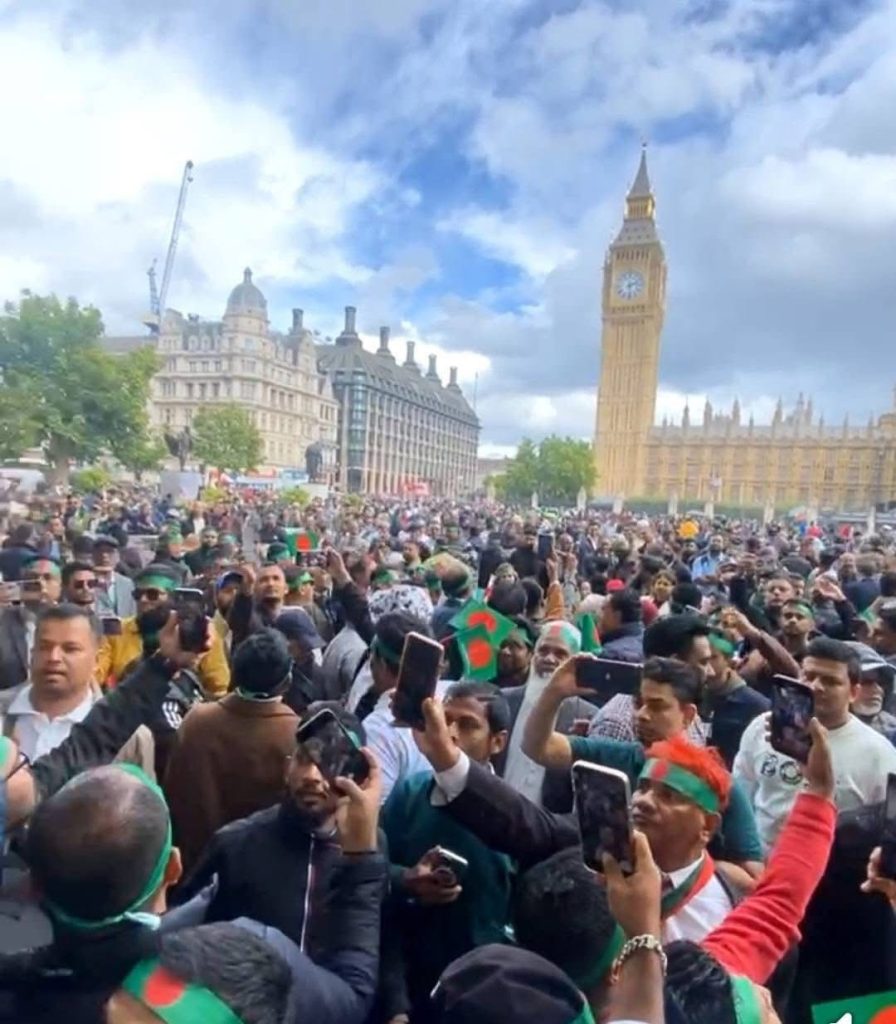
It is notable that on 8 August 1971, the largest gathering of expatriates, the “Recognize Bangladesh Rally,” was held to demand recognition of Bangladesh. That day too, thousands of men and women came from different cities of the UK, and the rally received wide coverage in the mainstream media of the UK and the world, playing a significant role in building global public opinion. Trafalgar Square, therefore, is considered a historic place for movements, struggles, and rallies in the UK.

